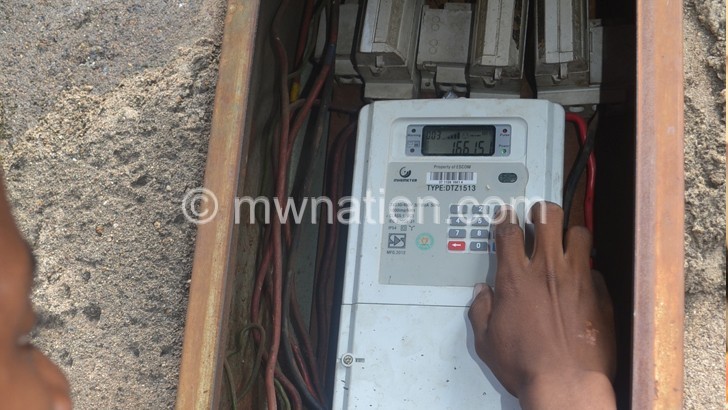Proposed electricity tariff under review—Mera
Malawi Energy Regulatory Authority (Mera) says the proposed 99 percent electricity tariff hike to be spread over a four-year period, from 2022 to 2026, is still undergoing scrutiny before a new model is implemented.
According to Mera, the proposal, which was submitted by the Electricity Supply Corporation of Malawi (Escom) and the Power Market Limited (PML) last month, will have to fulfil the base tariff process.

In an interview on Wednesday, Mera consumer affairs and public relations manager Fitina Khonje said the tariff process is undergoing an inclusive and transparent process.
Said said: “This far, we received written feedback from consumers and stakeholders. After this, we will hold public hearings to allow for direct engagement between consumers and the electricity licencees.
“This is very important in the tariff determination process so that the authority can arrive at an appropriate decision that takes into account both consumer interest and sustainability of the electricity sector.”
Under the 2022-2026 Electricity Base Tariff Application submitted to Mera, Escom and PML want electricity tariffs hiked by 80.75 percent from the current K104 per kwh to K187.98 in the 2022-2023, which is the first year of implementation.
In the 2023-2024 year, the State utility firms have proposed a K184.18 per kwh hike whereas in the 2024 -20225 and 2025- 2026 year the firms want a K210.59 per kwh and K249.15 per kwh increase.
Consumers Association of Malawi executive director John Kapito has since indicated that Escom is not justified to increase tariffs, saying it has failed to perform to the expectations of Malawians.
He said: “Since the last base tariff was effected four years ago, Escom has failed to achieve any of the agreed Key Performance Indicators. It is unfortunate that Escom expects to make money when it has no electricity and makes a lot of poor management decisions.”
Malawi Confederation of Chambers of Commerce and Industry (MCCCI) has also warned that the proposed electricity tariff could make it tough for businesses to operate as higher tariffs are detrimental to meaningful production.
“We want Escom to be sustainable and it is never going to be sustainable if it is buying electricity at a higher price than it is selling, but at the same time, high tariffs make it tough for businesses but also the general public,” MCCCI president Lekani Katandula said earlier.
Under the current 2018-2022 Escom Base Tariff Schedule, Mera in October 2018 approved a 31.8 percent base tariff for the four-year period.
The implementation of the base tariff was segmented into four annual tranches of 20 percent, 7.2 percent, negative three percent and 10 percent tariff adjustments for the first, second, third and fourth years in that order.
Meanwhile, Escom and PML have indicated that the aim of the hike is to ensure provision of continuous and uninterrupted electricity supply as well as sustainability of the energy sector.
In the application, Escom has indicated that throughout the period of base tariff it faced a number of challenges, including low energy sales which were below target.





